Mon, 06/13/2016 - 17:09
Sins of the father do not apply to the Orlando nightclub attacker
In the aftermath of the worst shooting in recent US history, investigators and journalists are busy patching together a profile of the gunman and his background for the obvious reasons. This is the age when all manner of unstable, paranoid lone wolves can sign up for all manner of nutcase, but deadly, jihadist causes. It’s particularly important in a nutcase country spectacularly lacking in requisite levels of “gunphobia”.
But if there are lessons to be learned, they need to be studied dispassionately without falling into the trap of Donald Trump-esque Islamophobia on the one hand or leftist apologizing and denial on the other.
The one thing we need to get right though is the nuances of cultural context particularly when it comes to children of immigrant parents who have settled in the so-called West.
The profile emerging of Omar Mateen, the Orlando nightclub suspect, appears in many ways to mirror that of the November 13, 2015 Paris attackers and the March 22 Brussels bombers.
These young men are sons of Muslim immigrants. They were born in the West, were not particularly religious, had little or no access to the lived, syncretic Islam practiced – or once practiced – in their parents’ homelands. They were known to law enforcement officials and yet had easy access to firearms, which made them particularly lethal when they encountered the new brand of instant radicalism available online or in prison cells.
When it comes to profiling the 29-year-old New York-born Orlando nightclub suspect, media attention will invariably focus on his father, Seddique Mateen, merely because there’s so much material in the public domain to be examined.
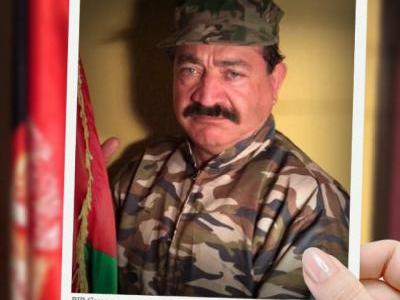
This is the next generation of post-attack reporting, when investigators, experts and journalists have access not just to the suspect’s online footprint, they can even examine the social media output of their parents.
Enter the 'Taliban-supporting' claim
Mateen Senior is a tricky case study though. In the immediate aftermath of the Pulse nightclub attack, as US newsrooms were pulling journalists out of their weekend breaks to do the sort of saturation coverage we’ve come to expect, the initial reports on the Orlando suspect’s father were all over the place.
One of the worst cases of misrepresentation came early, from the Washington Post no less, in an article titled, “Orlando suspect’s father hosted a TV show and now pretends to be Afghanistan’s president”.
The article kicks off with a description of Seddique Mateen as “an Afghan man who holds strong political views, including support for the Afghan Taliban. In a video he posted on Saturday, he appears to be portraying himself as the president of Afghanistan.”
Intrigued by the report, I promptly checked the elder Mateen’s Facebook page and on first sight, something didn’t seem right. His profile picture featured a jowly middle aged man dressed in the sort of Western suit garb favored by what I call “Afghan nationalist uncles” cooling their heels and venting their spleens in exile.
The banner picture behind his mug shot boasted the modern Afghan flag correctly emblazoned with the single word “Afghanistan” -- unlike some of the earlier versions proclaiming “The Islamic Republic of Afghanistan”.
But by the time I was done checking out his Facebook page, intrigue had given way to a form of pity.
‘He is a nut’
By all accounts Mateen Senior is bombastic, delusional, prolix and probably dyslexic. In some crazy phase of his prolific, self-made media career, he proclaimed himself president of Afghanistan. That’s how batty he is.
But like many parents of kids who have jumped on the Daesh/Islamic State (IS) group killing train, he has never advocated killing people who disagree with him.
This is consistent with the generational break we are witnessing between immigrant parents who have left their native lands and their children who have a limited, at best, grasp of their parents’ countries of birth.
And Seddique Mateen, by all accounts, is an Afghan nationalist obsessed by the politics, intrigues and conspiracies surrounding his native land.
A photograph posted on Jan. 10 on his Facebook page features Mateen seated in bizarre camouflage fatigues before giant portraits of the late Afghan King Amanullah Khan, a 1920s-era reformer and modernizer, and Daoud Khan, a former Afghan president known for his progressive policies, whose assassination unleashed a leftist bloodbath that triggered the 1979 Soviet invasion.
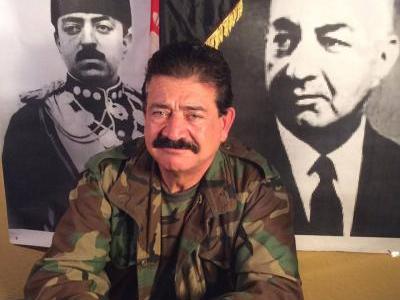
Subsequent photographs get even more outlandish, including an updated version of the Amanullah-Daoud Khan photograph with Uzbek strongman and current Afghan Vice President Rashid Dostum photoshopped in the picture.
This was not the account of a Taliban supporter, far from it. Taliban supporters don’t hang around photographs of long-dead Afghan leftists and modernists. And they certainly will not countenance a photoshop job with Dostum, who intentionally suffocated thousands of Taliban prisoners shortly after the 2001 US-led offensive against the Taliban began.
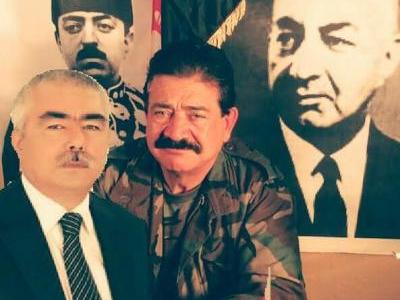
Then there are the frequent rants by Mateen senior against the IS group. “Daesh is the enemy of the Afghan people,” he proclaims in one video clip. “Daesh brings nothing good for Afghanistan.”
This is in sharp contrast to his son’s Daesh allegiance pledge or the group's acknowledgment of Sunday’s attack proclaiming the Orlando gunman “a soldier of the caliphate in America”.
If we’re looking for a “sins of the father” scenario, the closest we can get to fitting this piece of the jigsaw is that the Mateen father and son are both nut jobs.
As Barnett Rubin, a leading expert on Afghanistan, tweeted, “Orlando shooter's dad Seddique Mateen doesn't support Taliban or anything but himself. No wonder his son was unstable. Look at his FB page.”
After examining what he deliciously called Mateen’s “logorrhean FB page,” Rubin not surprisingly concludes, “He is a nut”.
Inconsistencies galore. Go figure
Indeed the senior Mateen is vocal, verbose and the opinions aired in his online rants, at first sight, seem inconsistent. His written Dari is so poor, my Persian-speaking colleagues winced and wondered if he’s dyslexic.
But his gripes are not uncommon in the Afghan community, neither are his seemingly contradictory views. Inconsistent views are par for the course among a people who have lived through – or fled -- a war that has dragged on, in some shape or form, for nearly 40 years with all sorts of local, regional and international players with vested interests mucking around.
In the course of a single 15-minute conversation with an Afghan, for instance, you could well discover that he hates Americans, wants foreigners out of his country, does NOT want US troops to leave Afghanistan, admits the past few years of Western-driven prosperity has been the best decade ever for his family, is afraid of a Taliban return, admires the Taliban, will bemoan the Taliban music ban, will then praise former Taliban chief Mullah Omar as “a good man,” and will always, always blame Pakistan.
Go figure.
Blame Pakistan and the Durand Line
By these standards, Seddique Mateen’s opinions are positively consistent. This is especially so when it comes to his two pet peeves: Pakistan and the Durand Line, or the border dividing Afghanistan and Pakistan that was drawn up in the colonial British era with classic imperial hubris.
The misguided characterization of Senior Mateen as a Taliban supporter stems from his recognition that the jihadist group opposes the Durand Line. In that respect, the Taliban has enjoyed the patronage of the Pakistan without ever compromising on an issue that riles Afghans to this day.
Afghans do have a point about the Durand Line and Pakistan. The former divided the Pashtuns, denying them a homeland and ensuring the sort of discontent that grips Kurds to this day.
But Seddique Mateen’s beef with Pakistan is so overpowering, it creeps into his discourse even in a period of grief and mourning.
A video appears, then disappears
A video message posted on his Facebook page hours after the shooting is an interesting study of the issues -- obvious and subliminal – haunting Mateen.
The three-minute clip in Dari appeared on his Facebook timeline early Monday, but was deleted hours later and so I’m going to have to describe its content.
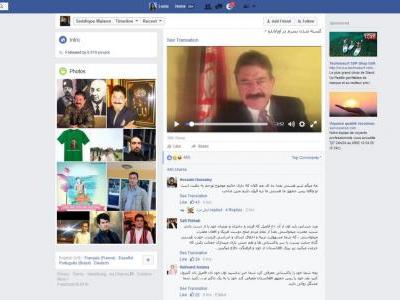
Begining with the standard hailing of the Prophet, Mateen then launches into his message. “Greetings to the people of Afghanistan, my dear compatriots. You may know about the death of my child, I am really sad,” says Mateen, dressed in a formal black suit, before going on to reiterate, time and again, that he does not understand how and why his son, “a good child, educated, with a wife and children” could have committed such a ghastly deed. “I don’t have any information. I don’t understand. I didn’t know he had oqda inside him,” says Mateen, using a Dari word for bitterness or grievance.
He then proceeds to briefly explain what his son did. “He went into a gay club where there were boys and girls. He killed them. I am profoundly sad, my heart is bleeding. I say to the American people, I don’t know why he did such a thing during this sacred month of Ramadan. Only God is our judge, it’s not our business as slaves of God. Only God can punish them, not us…May God protect young people and put them on Islam’s right path,” he continues before ending with a familiar anti-Pakistan rant. “I told the American TV station [NBC] Pakistan is responsible for terrorism and insecurity. Long live the people of Afghanistan, death to Pakistan.”
So much to examine here, where do I begin?
For starters, the Dari term Mateen employs for “gay” is “hamjens baz” -- literally “same-sex fooling around” -- which lacks the political correctness of “hamjens gara,” or same-sex orientation.
But then Mateen doesn’t seem like a particularly politically correct man. His declaration that, “Only God can punish” gays though is a telling statement of the latent homophobia prevalent in all too many sections of society.
Let’s be clear: the LGBT community has long complained of homophobia in Islam. The Arab world is not particularly kind on gays. They face lashings in Saudi Arabia and police torture in Egypt.
But then Uganda isn’t particularly soft on gays and neither is large chunks of macho, sub-Saharan Africa.
Homophobia for all brands of fundamentalists
As for religion, homophobia is hardly unique to Islam. Fundamentalist Christians, Hindus, Jews and Buddhists display levels of homophobia and it must be addressed and deplored in all forms.
The fine line though is when disapproval is perceived as a license to kill. In the IS group’s so-called caliphate, gay men face a particularly gruesome death: they are thrown off rooftops.
In the jihadist group’s message claiming the Orlando nightclub attack, they note that “one of God’s soldiers” had targeted “the people of Sodom” and enabled him to wreak destruction on “the filthy crusaders”.
When religious texts condone the destruction of a city for the “sin of Sodom,” it’s time to roll out the interfaith bandwagon of warm and fuzzy priests, rabbis, imams, pundits and monks to issue their Kumbaya messages of peace, love and tolerance.
This works for the Kumbaya crowd engaged in intellectual gymnastics to balance 21st century gay rights with “the word” of god -- or gods, as the case may be. But for the literalists, God’s wrath on Sodom and Gomorrah is plain to see – and read.
As the US enters the final leg of a presidential race marked by Islamophobia on one side and a defensive response on the other, the Orlando nightclub attack is bound to feature on the campaign trail.
As the flood of reactions start to roll, let’s get some things straight. The high death toll of Sunday’s shooting has ensured the attack on the Pulse nightclub will have a spot in the noxious history of terrorist attacks. That it happened in the thick of presidential campaign season, when candidates will be forced to react and keep the issue on the front burner, will make it even more sickening.
But the fundamental facts of the new, lone wolf form of jihad we are all confronting are the same: troubled kids estranged from the values of their parents, known to law enforcement officials and with access to firearms can commit mass murders. They do this because they have access to destructive jihadist messages online and they radicalize super fast.
Now let’s just leave the grieving parents in peace. If they have social media accounts touting strange proclamations we do not understand within a context we cannot quite grasp, then let’s just quit “overexamining” their online posts. It’s not going to shed much light on anything and we’ll simply be wasting our precious time.
But if there are lessons to be learned, they need to be studied dispassionately without falling into the trap of Donald Trump-esque Islamophobia on the one hand or leftist apologizing and denial on the other.
The one thing we need to get right though is the nuances of cultural context particularly when it comes to children of immigrant parents who have settled in the so-called West.
The profile emerging of Omar Mateen, the Orlando nightclub suspect, appears in many ways to mirror that of the November 13, 2015 Paris attackers and the March 22 Brussels bombers.
These young men are sons of Muslim immigrants. They were born in the West, were not particularly religious, had little or no access to the lived, syncretic Islam practiced – or once practiced – in their parents’ homelands. They were known to law enforcement officials and yet had easy access to firearms, which made them particularly lethal when they encountered the new brand of instant radicalism available online or in prison cells.
When it comes to profiling the 29-year-old New York-born Orlando nightclub suspect, media attention will invariably focus on his father, Seddique Mateen, merely because there’s so much material in the public domain to be examined.

This is the next generation of post-attack reporting, when investigators, experts and journalists have access not just to the suspect’s online footprint, they can even examine the social media output of their parents.
Enter the 'Taliban-supporting' claim
Mateen Senior is a tricky case study though. In the immediate aftermath of the Pulse nightclub attack, as US newsrooms were pulling journalists out of their weekend breaks to do the sort of saturation coverage we’ve come to expect, the initial reports on the Orlando suspect’s father were all over the place.
One of the worst cases of misrepresentation came early, from the Washington Post no less, in an article titled, “Orlando suspect’s father hosted a TV show and now pretends to be Afghanistan’s president”.
The article kicks off with a description of Seddique Mateen as “an Afghan man who holds strong political views, including support for the Afghan Taliban. In a video he posted on Saturday, he appears to be portraying himself as the president of Afghanistan.”
Intrigued by the report, I promptly checked the elder Mateen’s Facebook page and on first sight, something didn’t seem right. His profile picture featured a jowly middle aged man dressed in the sort of Western suit garb favored by what I call “Afghan nationalist uncles” cooling their heels and venting their spleens in exile.
The banner picture behind his mug shot boasted the modern Afghan flag correctly emblazoned with the single word “Afghanistan” -- unlike some of the earlier versions proclaiming “The Islamic Republic of Afghanistan”.
But by the time I was done checking out his Facebook page, intrigue had given way to a form of pity.
‘He is a nut’
By all accounts Mateen Senior is bombastic, delusional, prolix and probably dyslexic. In some crazy phase of his prolific, self-made media career, he proclaimed himself president of Afghanistan. That’s how batty he is.
But like many parents of kids who have jumped on the Daesh/Islamic State (IS) group killing train, he has never advocated killing people who disagree with him.
This is consistent with the generational break we are witnessing between immigrant parents who have left their native lands and their children who have a limited, at best, grasp of their parents’ countries of birth.
And Seddique Mateen, by all accounts, is an Afghan nationalist obsessed by the politics, intrigues and conspiracies surrounding his native land.
A photograph posted on Jan. 10 on his Facebook page features Mateen seated in bizarre camouflage fatigues before giant portraits of the late Afghan King Amanullah Khan, a 1920s-era reformer and modernizer, and Daoud Khan, a former Afghan president known for his progressive policies, whose assassination unleashed a leftist bloodbath that triggered the 1979 Soviet invasion.

Subsequent photographs get even more outlandish, including an updated version of the Amanullah-Daoud Khan photograph with Uzbek strongman and current Afghan Vice President Rashid Dostum photoshopped in the picture.
This was not the account of a Taliban supporter, far from it. Taliban supporters don’t hang around photographs of long-dead Afghan leftists and modernists. And they certainly will not countenance a photoshop job with Dostum, who intentionally suffocated thousands of Taliban prisoners shortly after the 2001 US-led offensive against the Taliban began.

Then there are the frequent rants by Mateen senior against the IS group. “Daesh is the enemy of the Afghan people,” he proclaims in one video clip. “Daesh brings nothing good for Afghanistan.”
This is in sharp contrast to his son’s Daesh allegiance pledge or the group's acknowledgment of Sunday’s attack proclaiming the Orlando gunman “a soldier of the caliphate in America”.
If we’re looking for a “sins of the father” scenario, the closest we can get to fitting this piece of the jigsaw is that the Mateen father and son are both nut jobs.
As Barnett Rubin, a leading expert on Afghanistan, tweeted, “Orlando shooter's dad Seddique Mateen doesn't support Taliban or anything but himself. No wonder his son was unstable. Look at his FB page.”
After examining what he deliciously called Mateen’s “logorrhean FB page,” Rubin not surprisingly concludes, “He is a nut”.
Inconsistencies galore. Go figure
Indeed the senior Mateen is vocal, verbose and the opinions aired in his online rants, at first sight, seem inconsistent. His written Dari is so poor, my Persian-speaking colleagues winced and wondered if he’s dyslexic.
But his gripes are not uncommon in the Afghan community, neither are his seemingly contradictory views. Inconsistent views are par for the course among a people who have lived through – or fled -- a war that has dragged on, in some shape or form, for nearly 40 years with all sorts of local, regional and international players with vested interests mucking around.
In the course of a single 15-minute conversation with an Afghan, for instance, you could well discover that he hates Americans, wants foreigners out of his country, does NOT want US troops to leave Afghanistan, admits the past few years of Western-driven prosperity has been the best decade ever for his family, is afraid of a Taliban return, admires the Taliban, will bemoan the Taliban music ban, will then praise former Taliban chief Mullah Omar as “a good man,” and will always, always blame Pakistan.
Go figure.
Blame Pakistan and the Durand Line
By these standards, Seddique Mateen’s opinions are positively consistent. This is especially so when it comes to his two pet peeves: Pakistan and the Durand Line, or the border dividing Afghanistan and Pakistan that was drawn up in the colonial British era with classic imperial hubris.
The misguided characterization of Senior Mateen as a Taliban supporter stems from his recognition that the jihadist group opposes the Durand Line. In that respect, the Taliban has enjoyed the patronage of the Pakistan without ever compromising on an issue that riles Afghans to this day.
Afghans do have a point about the Durand Line and Pakistan. The former divided the Pashtuns, denying them a homeland and ensuring the sort of discontent that grips Kurds to this day.
But Seddique Mateen’s beef with Pakistan is so overpowering, it creeps into his discourse even in a period of grief and mourning.
A video appears, then disappears
A video message posted on his Facebook page hours after the shooting is an interesting study of the issues -- obvious and subliminal – haunting Mateen.
The three-minute clip in Dari appeared on his Facebook timeline early Monday, but was deleted hours later and so I’m going to have to describe its content.

Begining with the standard hailing of the Prophet, Mateen then launches into his message. “Greetings to the people of Afghanistan, my dear compatriots. You may know about the death of my child, I am really sad,” says Mateen, dressed in a formal black suit, before going on to reiterate, time and again, that he does not understand how and why his son, “a good child, educated, with a wife and children” could have committed such a ghastly deed. “I don’t have any information. I don’t understand. I didn’t know he had oqda inside him,” says Mateen, using a Dari word for bitterness or grievance.
He then proceeds to briefly explain what his son did. “He went into a gay club where there were boys and girls. He killed them. I am profoundly sad, my heart is bleeding. I say to the American people, I don’t know why he did such a thing during this sacred month of Ramadan. Only God is our judge, it’s not our business as slaves of God. Only God can punish them, not us…May God protect young people and put them on Islam’s right path,” he continues before ending with a familiar anti-Pakistan rant. “I told the American TV station [NBC] Pakistan is responsible for terrorism and insecurity. Long live the people of Afghanistan, death to Pakistan.”
So much to examine here, where do I begin?
For starters, the Dari term Mateen employs for “gay” is “hamjens baz” -- literally “same-sex fooling around” -- which lacks the political correctness of “hamjens gara,” or same-sex orientation.
But then Mateen doesn’t seem like a particularly politically correct man. His declaration that, “Only God can punish” gays though is a telling statement of the latent homophobia prevalent in all too many sections of society.
Let’s be clear: the LGBT community has long complained of homophobia in Islam. The Arab world is not particularly kind on gays. They face lashings in Saudi Arabia and police torture in Egypt.
But then Uganda isn’t particularly soft on gays and neither is large chunks of macho, sub-Saharan Africa.
Homophobia for all brands of fundamentalists
As for religion, homophobia is hardly unique to Islam. Fundamentalist Christians, Hindus, Jews and Buddhists display levels of homophobia and it must be addressed and deplored in all forms.
The fine line though is when disapproval is perceived as a license to kill. In the IS group’s so-called caliphate, gay men face a particularly gruesome death: they are thrown off rooftops.
In the jihadist group’s message claiming the Orlando nightclub attack, they note that “one of God’s soldiers” had targeted “the people of Sodom” and enabled him to wreak destruction on “the filthy crusaders”.
When religious texts condone the destruction of a city for the “sin of Sodom,” it’s time to roll out the interfaith bandwagon of warm and fuzzy priests, rabbis, imams, pundits and monks to issue their Kumbaya messages of peace, love and tolerance.
This works for the Kumbaya crowd engaged in intellectual gymnastics to balance 21st century gay rights with “the word” of god -- or gods, as the case may be. But for the literalists, God’s wrath on Sodom and Gomorrah is plain to see – and read.
As the US enters the final leg of a presidential race marked by Islamophobia on one side and a defensive response on the other, the Orlando nightclub attack is bound to feature on the campaign trail.
As the flood of reactions start to roll, let’s get some things straight. The high death toll of Sunday’s shooting has ensured the attack on the Pulse nightclub will have a spot in the noxious history of terrorist attacks. That it happened in the thick of presidential campaign season, when candidates will be forced to react and keep the issue on the front burner, will make it even more sickening.
But the fundamental facts of the new, lone wolf form of jihad we are all confronting are the same: troubled kids estranged from the values of their parents, known to law enforcement officials and with access to firearms can commit mass murders. They do this because they have access to destructive jihadist messages online and they radicalize super fast.
Now let’s just leave the grieving parents in peace. If they have social media accounts touting strange proclamations we do not understand within a context we cannot quite grasp, then let’s just quit “overexamining” their online posts. It’s not going to shed much light on anything and we’ll simply be wasting our precious time.
Tags for all blogs :
Comments or opinions expressed on this blog are those of the individual contributors only, and do not necessarily represent the views of FRANCE 24. The content on this blog is provided on an "as-is" basis. FRANCE 24 is not liable for any damages whatsoever arising out of the content or use of this blog.


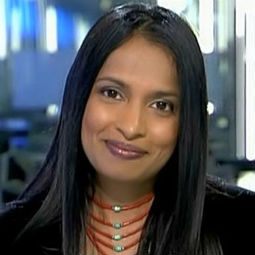
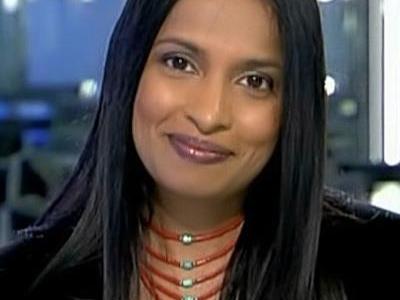
0 Comments
Post new comment